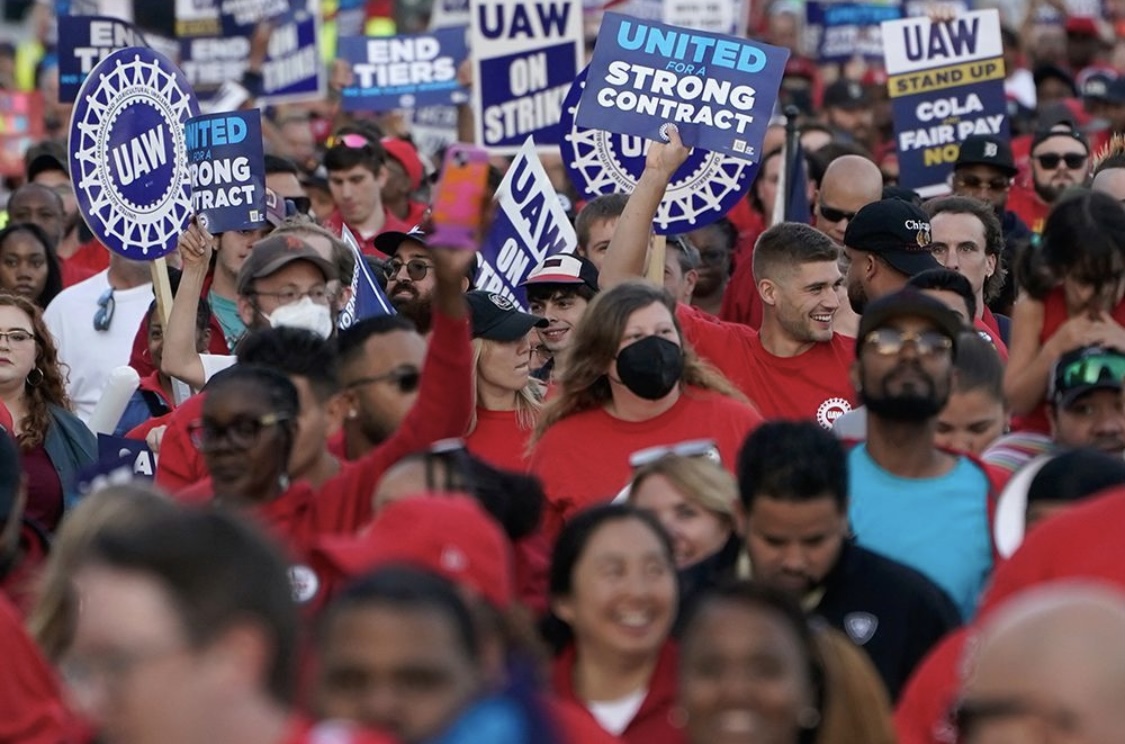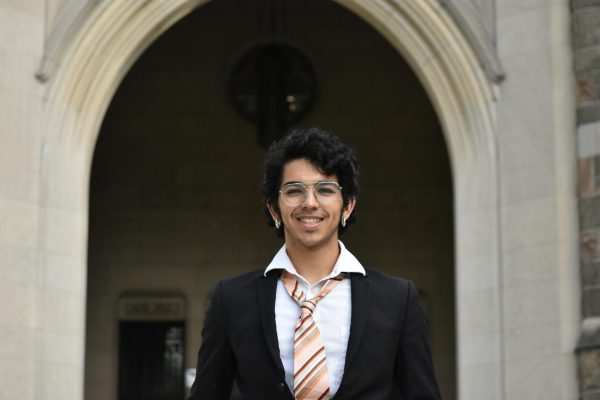“Why is it easier for a camel to pass through the eye of a needle than for a rich man to enter the kingdom of God?”
I wish I could have been the one inspired enough to evoke a biblical reference of Matthew 19:23-24 to apply to the corporate greed displayed by automobile manufacturing companies General Motors, Ford and Stellantis (known jointly as the Big Three), currently being combated by ongoing labor strikes from the United Auto Workers union (UAW). The biblical reference, however, was spoken by UAW President Shawn Fain in a YouTube address to the union. He answered his own question by stating:
“I have to believe that answer, at least in part, is because, in the kingdom of God, no one hoards all the wealth while everybody else suffers and starves. In the kingdom of God, no one puts themselves in a position of total domination over the entire community… no one forces others to perform endless back-breaking work just to feed their families or put a roof over their heads. That world is not the kingdom of God; that world is Hell.”
On Friday, Sept. 15, 10% of unionized auto workers, 13,000 of the 146,000 total workers at the three impacted companies, went on strike at three assembly plants to demand a wage increase of 36% spread across four years, and the restoration of various compensation plans that have been stripped away as early as 2007. By Sept. 22, the strike expanded to include an additional 5,600 workers and now affects all 38 parts-distribution centers operated by the Big Three.
When this article was pitched to the Ram, one of the driving questions was “Could the strike harm the economy?”
If a shortage of labor at manufacturing plants in Missouri, Michigan and Ohio causes any sort of economic harm, the onus is not on the laborers sacrificing their livelihood for better working conditions, but on executives at the Big Three who continue to stockpile and hoard the wealth produced by the workers they preside over.
As it stands, the UAW is attempting to reduce economic harm by not striking at manufacturing plants that produce automobiles in high demand, like the Ford F-150. While this does mitigate economic harm in the short-term, it also provides an area for the union to increase pressure should the Big Three not counter the strike with fair negotiation.
Analyses from various economic outlets have already quantified the negative economic impacts. Estimates from Deutsche Bank claim that the strike caused a production loss of 16,000 vehicles, while the Anderson Economic Group estimates a loss greater than $1.6 billion.
In the face of economic damages, the strike has seen support from President Joe Biden and Senator Bernie Sanders.
While support from high-ranking government officials can lend some strength to the striking workers, this kind of support cannot sustain labor struggles — only the support of you, me and everyone in our community can do that.
While you or your neighbor might not be personally affected or invested in the health of auto workers, it’s important to recognize that the struggles of laborers across the country are not singular, isolated incidents but a large, unified fight for the prosperity of America’s largest class.
The UAW is not the only section of labor to go on strike within the past few years, and it certainly isn’t the only group of laborers currently on strike. Besides the ongoing strike of the Screen Actors Guild (and the recently-ended Writers Guild of America strike) in Hollywood, hotel workers in Los Angeles and nurses in New Brunswick N.J., school teachers, Starbucks baristas and Amazon delivery drivers have all shown that the direction of labor action in the United States is accelerating toward progress for the country’s working class.
Even here at Fordham, labor action has shown itself to be lucrative for university educators and workers. While strikes have yet to occur, the threat of them and the wave of unionization for adjunct faculty, graduate students and Resident Assistants have shown that solidarity with the workers around us builds potential for better working and living conditions for the whole community.
Sebastian Diaz, FCRH ’24, is a journalism and film major from Chapel Hill, N.C.










































































































































































































